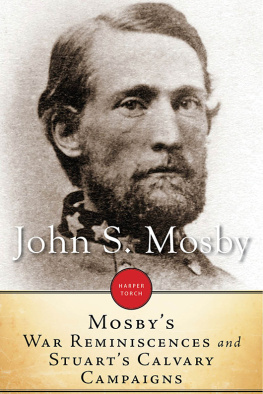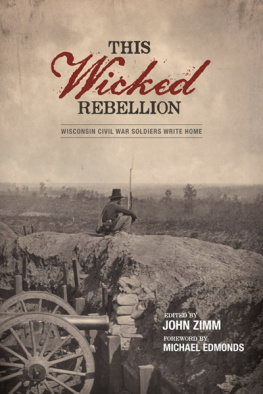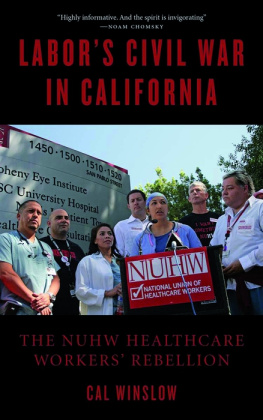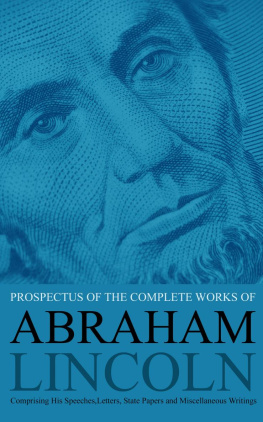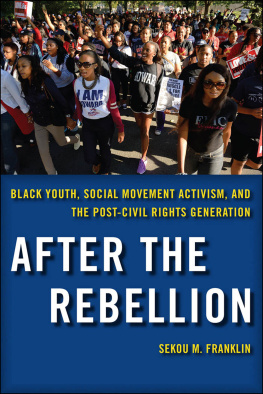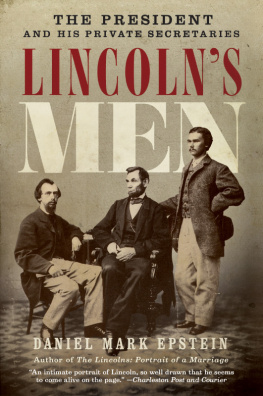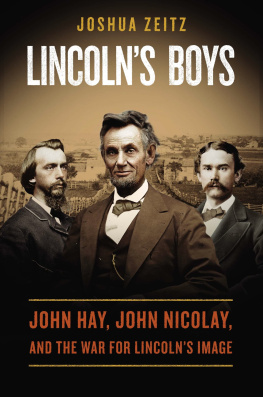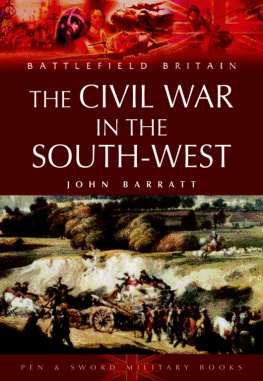Campaigns Of The Civil War Vol. 1 - The Outbreak Of Rebellion
John G. Nicolay
Contents:
Preface.
Chapter I - Secession.
Chapter II - Charleston Harbor.
Chapter III - The Confederate States' Rebellion.
Chapter IV - Lincoln.
Chapter V - Sumter.
Chaptek VI - The Call To Arms.
Chapter VII - Baltimore.
Chapter VIII - Washington.
Campaigns of the Civil War Vol. 1, John G. Nicolay
Jazzybee Verlag Jrgen Beck
86450 Altenmnster, Germany
ISBN: 9783849619954
www.jazzybee-verlag.de
PREFACE.
Upon urgent and repeated request from the publishers, the author consented to lay aside temporarily a larger and more important literary task, to write for them this initial volume of the "Campaigns of the Civil War." Personal observation and long previous investigation had furnished him a great variety of new material for the work; and this was opportunely supplemented by the recent publication of the Official War Records for 1861, both Union and Confederate, opening to comparison and use an immense mass of historical data, and furnishing the definite means of verifying or correcting the statements of previous writers.
Under these advantages the author has written the present volume, basing his work on materials of unquestioned authenticity books, documents, and manuscripts and, indeed, for the greater part, on official public records. His effort has been a conscientious and painstaking, one, making historical accuracy his constant aim. If, unfortunately, he has committed any errors, he hopes they may prove such as from the meagreness or conflicting nature of the evidence any one might fall into. He would gladly have appended to his pages full references and citations, but want of space absolutely forbade.
So many kind friends have encouraged and aided him, that he finds it impossible to acknowledge their services in detail, and therefore takes this occasion to return to one and all his sincere thanks. Government officials, especially, of all grades, have with uniform courtesy afforded him every facility in their power. Without free access to the various departments and archives and, above all, to the vast historical treasures of the Library of Congress it would have been exceedingly difficult to gather and verify the numerous facts, quotations, names, and dates, which his narrative required.
Washington, D.C.,
February 26, 1881.
CHAPTER I - SECESSION.
The fifth day of October, 1860, is the initial point of the American Rebellion. Its conception, animus, and probably its plans, lay much farther back. It had been seriously proposed once or twice before, but it was then that its formal organization was begun. On that day Governor Gist, of South Carolina, wrote a confidential circular letter, which he despatched by the hand of a special messenger, to the governors of what were commonly designated the Cotton States. In this letter he asked an interchange of opinions which he might be at liberty to submit to a consultation of leading men of South Carolina. He said South Carolina would unquestionably call a convention as soon as it was ascertained that a majority of Lincoln electors were chosen in the then pending presidential election. "If a single State secedes," he said, "she will follow her. If no other state takes the lead, South Carolina will secede (in my opinion) alone, if she has any assurance that she will be soon followed by another or other States ; otherwise it is doubtful." He asked information, and advised concerted action.
North Carolina was first to respond. The people would not, so wrote the governor under date of October 18th, consider Lincoln's election a sufficient cause for disunion, and the Legislature would probably not call a convention. The Governor of Alabama, under date of October 25th, thought Alabama would not secede alone, but would secede in cooperation with two or more States. The Governor of ^Mississippi, under date of October 26th, wrote: "If any State moves, I think Mississippi will go with her." On the same day the Governor of Louisiana answered: " I shall not advise the secession of my State, and I will add that I do not think the people of Louisiana will ultimately decide in favor of that course." The Governor of Georgia, under date of October 31st, advocated retaliatory legislation, and ventured his opinion that the people of Georgia would wait for some overt act. Florida alone responded with anything like enthusiasm, but only after the lapse of a month. Her governor said that Florida was "ready to wheel into line with the gallant Palmetto State, or any other Cotton State or States," and thought she would unquestionably call a convention.
The discouraging tone of these answers establishes, beyond controversy, that, excepting in South Carolina, the rebellion was not in any sense a popular revolution, but was a conspiracy among the prominent local office-holders and politicians, which the people neither expected nor desired, and which they were made eventually to justify and uphold by the usual arts and expedients of conspiracy.
Directly and indirectly, the South had practically controlled the government during its whole existence. Excited to ambition by this success, she sought to perpetuate that control. The extension of slavery and the creation of additional Slave States was a necessary step in the scheme, and became the well-defined single issue in the presidential election. But in this contest the South for the first time met overwhelming defeat. The choice of Lincoln was a conclusive and final decision, in legal form and by constitutional majorities, that slavery should not be extended ; and the popular vote of 1860 transferred the balance of power irrevocably to the Free States.
In the political discussions throughout this presidential campaign, as well as in preceding years, the South had made free and loud use of two leading arguments, always with ' telling effect : the first, to intimidate the North, was the threat of disunion; the second, to "fire the Southern heart," was the entirely unfounded alarm-cry that the North, if successful, would not merely exclude slavery from federal territories, but would also destroy slavery in the Slave States. The unthinking masses of the South accepted both these arguments in their literal sense ; and Southern public opinion, excited and suspicious, became congenial soil in which the intended revolt easily took root.
The State of South Carolina, in addition, had been little else than a school of treason for thirty years. She was, moreover, peculiarly adapted to become the hotbed of conspiracy by the fact that of all the States she was least republican in both the character of her people and the form of her institutions. She was exclusive, aristocratic, reactionary ; had a narrow distrust of popular participation in government, and longed for the distinctions of caste and privilege in society.
It would seem that, before the governors' replies were all received, the consultation or caucus for which they were solicited was held, and the programme of insurrection agreed upon. Circumstances rendered a special session of the South Carolina Legislature necessary. The election was held during the month of October. Local fanaticism tolerated no opposition party in the State, and under the manipulation of the conspirators the prevailing question was, who was the most zealous "resistance" candidate. To a legislature elected from this kind of material, Governor Gist, on November 5th, sent a defiant, revolutionary message the first official notice and proclamation of insurrection. He declared that "our institutions" were in danger from the hostility of the "fixed majorities" of the North ; and recommended the calling of a State convention, and the purchase of arms and material of war.




